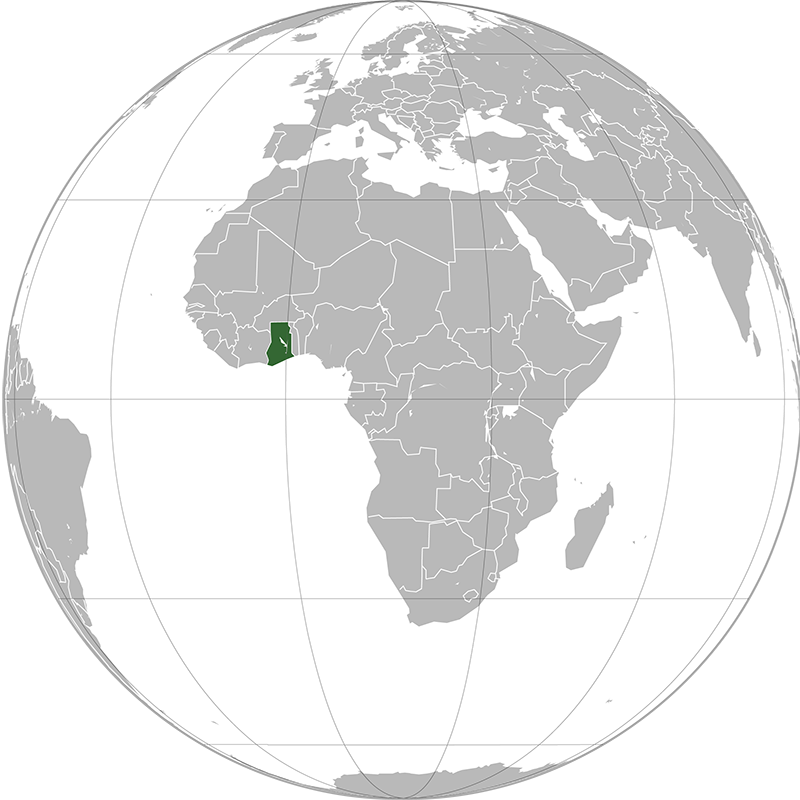
- Population:
- 34,427,000
- Religion:
- Christianity
Ghana was home to powerful West African states, including the Ashanti Empire, before becoming a British colony known as the Gold Coast. It was the first sub-Saharan African country to gain independence in 1957 under Kwame Nkrumah. Since then, Ghana has transitioned between military and civilian governments but has remained one of Africa's most stable democracies, with a growing economy based on gold, cocoa, and oil.
Ghana, officially the Republic of Ghana, is a country located along the Gulf of Guinea and the Atlantic Ocean in West Africa. It shares borders with Côte d'Ivoire to the west, Burkina Faso to the north, Togo to the east, and the Gulf of Guinea to the south. Covering an area of approximately 238,533 square kilometers, Ghana has a population of about 35 million people as of 2025. The capital and largest city is Accra. The official language is English, with numerous indigenous languages also widely spoken. Ghana operates as a unitary presidential constitutional republic. The economy is diverse, with key sectors including agriculture, mining, and services. Ghana is known for being the second-largest producer of cocoa globally and has significant gold reserves. The country is a member of the United Nations, the African Union, and the Economic Community of West African States. Ghana is recognized for its stable democracy and rich cultural heritage.






